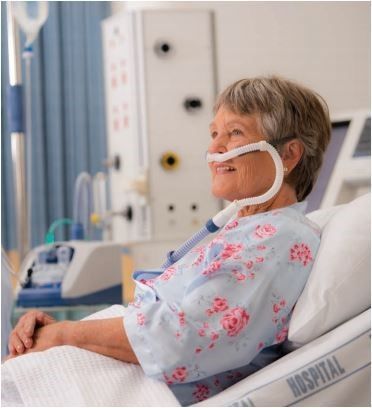World Thyroid Week from May 21 to 27 initiatives throughout Italy
World Thyroid Week May 21-27: initiatives throughout Italy
People with thyroid problems, to explain their condition, speak of “a state of discomfort” or having “lost their well-being”.
“This is precisely the peculiarity of hypothyroidism, the most common thyroid disease, explains Paul Vitti, President-Elect SIE, Italian Society of Endocrinology, coordinator and scientific leader of World Thyroid Week: symptoms are often so nuanced that it is difficult to trace them to a disease. And they are indeed many: fatigue, poor ability to tolerate cold, mood alterations, difficulty concentrating, palpitations, nervousness, insomnia, bloating, dry skin and hair but the list could go on. This is precisely why the theme chosen for World Thyroid Day and Week 2017 is “THYROID AND WELLNESS“.
That these are diseases that need to be properly framed and that treatments need to be individualized is now no longer enough. The challenge is to restore the well-being that so many people claim to have lost.”.
The thyroid gland performs a number of vital functions for our bodies such as regulating metabolism, controlling heart rate, nervous system development, body growth, muscle strength, and more. Precisely because of its role as a “powerhouse,” when this gland does not function properly, the whole body is affected. It can strike at any age, which is why certain alarm bells should not be overlooked by contacting your doctor when in doubt.
“The most effective way to prevent thyroid disease, explains Massimo Tonacchera, Associate Professor of Endocrinology and National Coordinator of the Iodine Deficiency Prevention Committee, is to take iodine in adequate amounts; this element is the essential constituent of thyroid hormones. Even mild iodine deficiency, which still plagues some areas of our country, can cause even serious consequences especially if the nutritional deficiency occurs during pregnancy or early childhood.”.
“Severe iodocarence,” it continues Roberto Gastaldi, SIEDP, Italian Society of Pediatric Endocrinology and Diabetology, can result in fetal death in utero, neurological cretinism, and congenital hypothyroidism. It is precisely the latter pathology that was the leading cause of mental retardation in our country before the introduction of neonatal screening, thanks to which early diagnosis and treatment can be carried out. After neonatal age, however, it is important to ensure adequate iodine intake both to ensure a smooth growth and development process of the child and to prevent thyroid pathologies such as nodules.”.
“Twelve years after the approval of Law 55/2005, which introduced the national iodoprophylaxis program, the iodine nutritional status of Italians has definitely improved. The data show that the percentage of iodized salt sold in large retailers in 2016 exceeded 60 percent, which is very positive given that before the law was passed it was only 30 percent, explains Antonella Olivieri, Scientific Officer National Observatory for Monitoring Iodoprophylaxis in Italy (OSNAMI), Istituto Superiore di Sanità. This figure, while encouraging, is still below the 80-85% threshold indicated by the World Health Organization for a successful iodoprophylaxis program. Data on school-age ioduria, or the concentration of iodine in urine, collected in collaboration with the Regional Goiter Prevention Observatories are also consistent with this improvement. Surveys conducted on 2500 children between 2015 and 2016 in Liguria, Tuscany, Marche, Lazio, and Sicily showed iodide values indicative of adequate intake of this element in all 5 regions.
But the most important result is having ascertained that in Liguria, Tuscany, Lazio and Sicily, for the first time it can be said that school-age goiter is no longer an endemic disease and has therefore been practically defeated. These data tell us that we must insist on the iodoprophylaxis program to extend adequate iodine intake to all regions of Italy, thereby reducing the risk of thyroid disease and neurocognitive deficits.”.
“Among the many functions of thyroid hormones in the brain is the control of mood, he continues Rinaldo Guglielmi, Past-President AME, Association of Medical Endocrinologists. When the thyroid gland is not functioning properly in many patients there is an alteration in behavior and mood; the greater the dysfunction of the gland, the more visible its influence will be, up to, in some severe forms, clinical pictures typical of depression. If you have frequent mood changes and there are no obvious psychic causes, it may help to check thyroid function by simple TSH testing.
When mood disturbances are due to thyroid dysfunction in almost all cases, it is possible to restore a normal mood tone consistent with the person’s character by rebalancing the thyroid gland by thyrostatics in the case of hyperthyroidism and by synthetic thyroid hormone in hypothyroidism”.
“With hypothyroidism, all functions of our body are negatively affected,” he explains Luigi Bartalena, President AIT, Italian Thyroid Association, with worsening quality of life and state of well-being, often markedly not only in the overt forms but also in the early forms, perhaps improperly called subclinical. Replacement therapy is implemented by employing levothyroxine (T4), which is the main hormone produced by the thyroid gland. In an era of increasingly personalized and precision medicine, each patient must be carefully monitored because the amount of hormone needed to bring thyroid status back into balance varies from individual to individual in relation also to variations in drug absorption, which must be taken at least half an hour before breakfast while avoiding the concomitant intake of interfering drugs and food such as soy, bran, calcium, iron, coffee, grapefruit juice, and gastroprotective drugs. Today, personalized and precision medicine in this area is facilitated by the availability of different formulations of levothyroxine ranging from classic tablets, soft capsules, and liquid single-dose vials for oral use that can be taken with breakfast and can thus better suit the needs of the individual patient.
In addition, in about 20% of patients, standard replacement therapy, for reasons that are not entirely clear, may not fully correct the unwell state despite the fact that hormone and TSH values are normal: in these situations, the addition of small amounts of levotriiodothyronine (T3) can effectively improve the patient’s overall condition. In conclusion, today replacement therapy aims not only to normalize hormone levels but also to restore a condition of full well-being.”.
“Endocrine disorders turn out to be among the most frequent chronic diseases in the elderly,” he points out Fabio Monzani, SIGG, Italian Society of Gerontology and Geriatrics, and in particular mild or subclinical hypothyroidism may affect 15-20% of women over 70 years old. In the elderly (over 80), it must always be verified in which cases the benefit of levothyroxine replacement therapy significantly outweighs the potential risks. Major guidelines suggest treatment of mild hypothyroidism in this part of the population only when there is actual thyroid disease with obvious symptoms, additional cardiovascular risk factors or very high TSH levels (>10 mIU/l)”.
“In the thyroid field, the use in Nuclear Medicine of radioactive substances called radiopharmaceuticals, particularly radioiodine, are an irreplaceable diagnostic and therapeutic aid,” he explains Onelio Geatti, Past President AIMN, Italian Association of Nuclear Physicians. Thyroid imaging is in most cases represented by ultrasound but, when it is necessary to map the distribution of function, scintigraphy by radioiodine administration is essential. Radioiodine is also applied for the treatment of some thyroid diseases such as hyperthyroidism from Plummer’s adenoma, Basedow’s disease resistant to thyrostatics, and for the treatment of papillary and follicular carcinomas after complete thyroid removal.”.
“Thyroid removal (thyroidectomy) is a safe and effective procedure, but it is a delicate one because the gland to be removed is close to structures that control important functions such as voice and calcium balance in the blood and tissues, he continues Luciano Pezzullo, President Club of UECs, Association of Italian Endocrine Surgery Units. Complications are very rare but they can be there and when they occur they are very serious. It follows that the choice of thyroidectomy must be careful and thoughtful.
New knowledge derived from the clinic and studies is leading to a change in surgical attitude that in the coming years will be less aggressive and in very low-risk cases will even be just an “observational” attitude avoiding surgery”.
“Among the institutional tasks of our associations, he concludes Anna Maria Biancifiori, Past-President CAPE, Committee of Associations of Endocrine Patients In addition, of course, to supporting, guiding, welcoming and assisting patients with thyroid diseases, it is increasingly important to provide information and promote health and well-being. For this purpose, the attention of the “healthy” population is essential to disseminate information on proper lifestyles and appropriate signs, symptoms, and pathways for prevention and diagnosis. Today we know that it is not necessary to implement generalized ultrasound screening programs that lead to overdiagnosis resulting in overtreatment and unnecessary costs, but to focus on widespread and correct information activities for the prevention of thyroid diseases.”.
World Thyroid Week, which will take place May 21-27, is sponsored by the Italian Thyroid Association (AIT), Italian Society of Endocrinology (SIE), Association of Medical Endocrinologists (AME), Italian Society of Pediatric Endocrinology and Diabetology (SIEDP), Italian Association of Nuclear Physicians (AIMN), Club of Endocrine Units (UEC Club), Italian Society of Endocrine Surgery (SIEC), Italian Society of Geriatrics and Gerontology (SIGG) together with the Committee of Endocrine Patient Associations (CAPE), and will be sponsored by European Thyroid Association (ETA), and Istituto Superiore di Sanità (ISS).
World Thyroid Week and World Thyroid Day are supported with an unconditional grant from IBSA Farmaceutici Italia, Merck, Sanofi Genzyme and Esaote.


